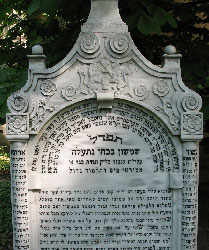Economy, Kinship, and Jewish Politics: The History of the Wertheimer Family, ca. 1650–1900
 In 1677, Samson Wertheimer (1658–1724) arrived in Vienna, one of the largest cities in the Holy Roman Empire at the time, with Samuel Oppenheimer (1630–1703). Having succeed Oppenheimer in the position, Wertheimer was one of the most important economic actors and the most influential court Jew in the late-17th and early-18th centuries. He served three emper
In 1677, Samson Wertheimer (1658–1724) arrived in Vienna, one of the largest cities in the Holy Roman Empire at the time, with Samuel Oppenheimer (1630–1703). Having succeed Oppenheimer in the position, Wertheimer was one of the most important economic actors and the most influential court Jew in the late-17th and early-18th centuries. He served three emper ors: Leopold I (reign: 1658–1705), Joseph I (1705–1711) and Charles VI (1711–1740). He held the offices of commissioner and court contractor, financial agent and resident, and commercial agent at the court of Vienna.
ors: Leopold I (reign: 1658–1705), Joseph I (1705–1711) and Charles VI (1711–1740). He held the offices of commissioner and court contractor, financial agent and resident, and commercial agent at the court of Vienna.Within the Jewish community, he held the positions of representative (shtadlan), community founder and patron, rabbi and dayyan. Seven years after his arrival, Wertheimer was given permission to settle in Vienna and this permit was soon extended to twenty years, an indication of the position he had obtained. Wertheimer’s business connections to the imperial court in Vienna and various German territories mainly began in the mid-1680s. His career within the Jewish community began a little later. Before the emperor appointed him chief rabbi of Hungary in August 1717, Wertheimer had become honorary rabbi of Eisenstadt in 1693 and in 1711 the Jewish community had nominated him as chief rabbi and shtadlan for the Hungarian Jews. In his responsa and as dayyan respectively, Wertheimer interpreted and determined the Jewish law for Viennese and Hungarian Jews. For example, he condemned the emerging coffee houses (Kafféhäusel) and morally lax behavior, but he also gave encouraging sermons. He supported the printing of the Talmud and funded Jewish scholars and several yeshivot.
By focusing on the Wertheimer family and analysing their life and activities throughout the generations, I explore the scope and transformation of Jewish political traditions (Shtadlanut) and charity (Zedakah) up to the 19th century.


